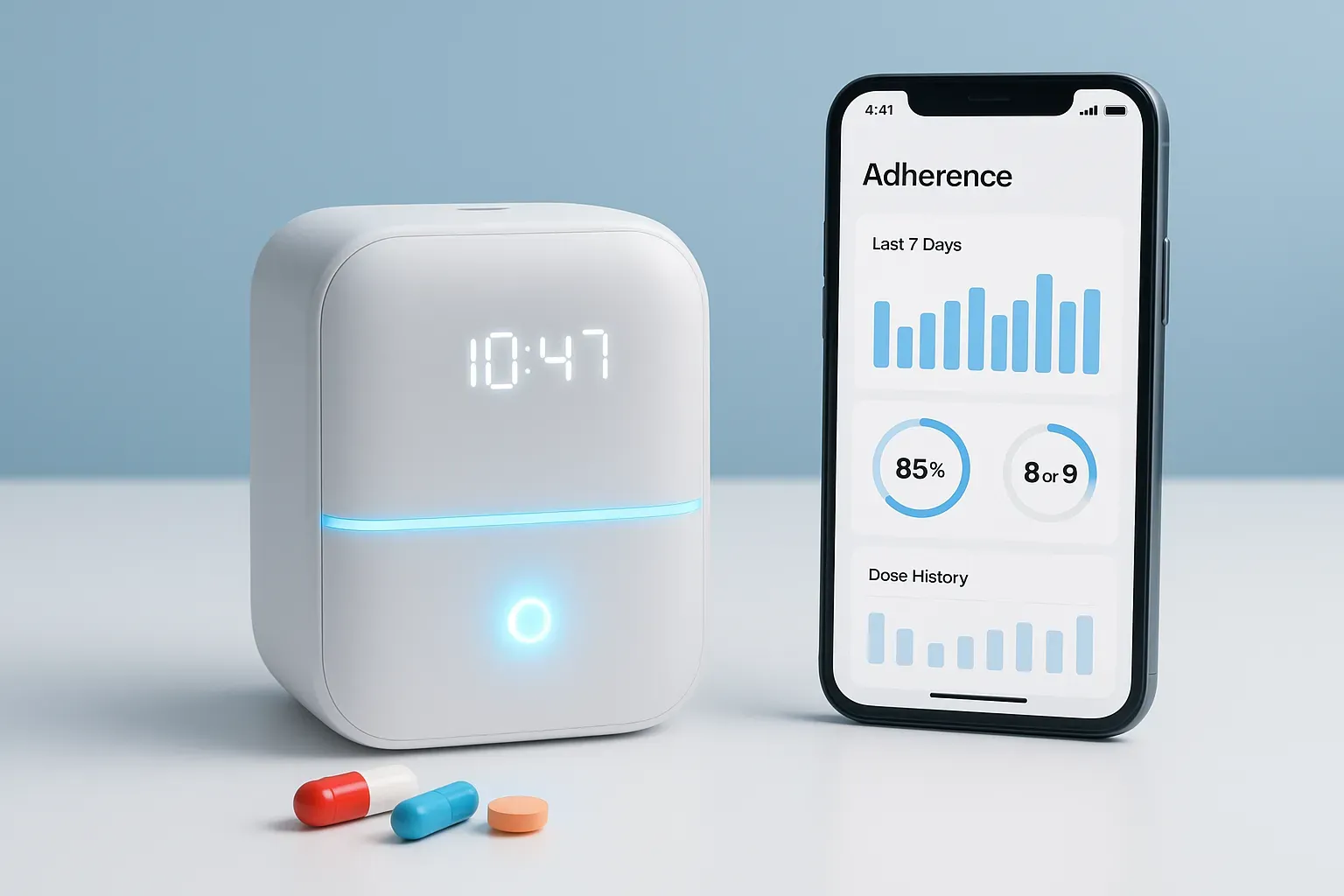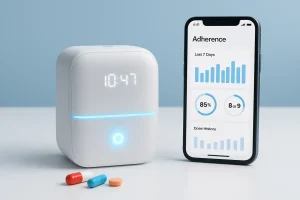Leading healthcare experts reveal powerful case studies demonstrating how personalized medicine is revolutionizing patient outcomes across multiple specialties. The following success stories showcase practical applications of genetic testing, pharmacogenomics, and tailored treatment protocols that are changing clinical practice. These evidence-based approaches offer valuable insights for healthcare professionals seeking to implement personalized care strategies in their own practice settings.
- Pharmacogenetics Validate Patient Experiences During Pregnancy
- Pharmacogenomics Enhances Mental Health Treatment Decisions
- Molecular Testing Leads to Precise Cancer Care
- Genetic Testing Transforms Melanoma Treatment Approach
- Patient-Centered Approach Transforms Menopause Management
- Integrate Data Sources for Effective Personalized Care
- Tailoring Obesity Treatment to Individual Needs
- Drug-Gene Analysis Shortens Depression Treatment Time
Pharmacogenetics Validate Patient Experiences During Pregnancy
Imagine being pregnant, so sick you cannot keep food down, and then being told by your doctor that the medication “should” be helping, yet not offering an alternate treatment.
One of the most meaningful parts of my work as a consulting pharmacist is helping women with Hyperemesis Gravidarum (HG). This potentially fatal condition is more than “morning sickness.” It can leave women malnourished, in and out of the hospital, severely depressed, considering termination and fearful of future pregnancies.
I worked with a mom who insisted ondansetron was not helping. Her provider told her to continue anyway, even at the max daily dose considered safe. When I saw the results of her pharmacogenomic (PGx) test, the reason became clear. She was an ultrafast metabolizer of a cytochrome P450 2D6 enzyme, resulting in her body breaking down the drug too quickly for it to be effective.
Another patient on ondansetron had an ABCB1 variation that prevented ondansetron from crossing the blood-brain barrier, meaning the medication never reached the serotonin receptors in the gut where it needed to act. In both cases, the medications simply could not work for them because of their genetic variations, but they were not believed by their providers. Having the PGx results eliminates this response.
With PGx results in hand, I was able to make recommendations for alternatives that were both safe and effective. The difference was life-changing: eliminating ER visits, improved nutrition, and the ability to keep working and living life during a difficult pregnancy, while preventing the potential need for hospitalization and tube feeding.
Takeaway for healthcare professionals: Personalizing medicine through pharmacogenetic testing is not about complicating care, creating administrative work, or adding an additional test. It is about simplifying decision-making and decreasing time to disease state improvement by starting with the safest and most effective medications for each patient. Using PGx results when beginning therapy reduces trial and error and strengthens patient trust while giving hope to the patient.

Pharmacogenomics Enhances Mental Health Treatment Decisions
Personalized medicine is about treating the person, not just the diagnosis, and this has completely changed the conversation around mental health care in my practice. It allows us to move past the frustrating trial-and-error phase of medication that so many people fear, and instead, use tools like pharmacogenomic testing to inform our choices from the very beginning.
I think of a young woman who came to my practice after years of struggling with depression. She had been on and off various medications, each with its own set of disappointing results or difficult side effects. She felt hopeless and was convinced that nothing would ever work. By using a simple genetic test, we could see how her body was likely to metabolize different medications. It suggested that many of the standard first-line treatments were poor fits for her specific genetic makeup.
This wasn’t about finding a “magic bullet,” but about using data to make a more informed, collaborative decision. Armed with this new information, we chose a medication that was a better match for her profile. The change was significant. Not only did her symptoms improve, but the simple act of using a personalized approach restored her hope and trust in the process. It shifted her from being a passive recipient of treatment to an active partner in her own recovery.
The key takeaway for healthcare professionals is this: Personalized medicine is not a replacement for clinical judgment, but a powerful enhancement of it. It provides a biological context that respects the patient’s individuality, reduces stigma, and empowers us to have more precise and hopeful conversations about treatment from day one.

Molecular Testing Leads to Precise Cancer Care
One example that stands out in my practice is the use of genetic profiling in bladder cancer patients. Traditionally, treatment decisions were based almost entirely on tumor stage and grade. But in a patient I recently managed, molecular testing revealed a TERT promoter mutation that not only clarified the aggressiveness of the disease but also helped tailor surveillance and treatment planning. Instead of a one-size-fits-all follow-up, we could design a more precise protocol, reducing unnecessary procedures while still maintaining vigilance against recurrence.
The key takeaway for healthcare professionals is this: personalized medicine is not just about new drugs, it’s about better decisions. By integrating genetic, molecular, and patient-specific factors into care, you’re not only improving outcomes but also enhancing quality of life. Actually, the follow-up is different. Even small steps, like incorporating risk calculators, germline testing in high-risk families, or molecular markers where available, can shift care from reactive to proactive.

Genetic Testing Transforms Melanoma Treatment Approach
A patient of mine with advanced melanoma had his tumor subjected to specific genetic mutation assays and was discovered to have a BRAF mutation; this largely altered the treatment pathway—from generic chemotherapy for advanced melanoma to a targeted therapy specifically designed for that mutation. The response was much better, and it had few side effects. This example to me shows how personalized medicine improves the efficacy of treatments while also reducing the burden they impose on patients.
What is that one important takeaway for the healthcare professional considering personalized medicine?
For personalized medicine, it always means that proper testing must be done upfront. Knowing what the molecular abnormality is will allow for choosing treatments that have a greater likelihood of having at least some kind of effect. Of course, this takes some effort and coordination of people with the added burdens, but in the end, that pays off by making a huge difference in patient outcomes.

Patient-Centered Approach Transforms Menopause Management
Personalized medicine is the core of my practice. Everyone has different symptoms and needs when it comes to navigating menopause, and our focus is on spending plenty of time with our patients to figure out their symptoms, their lifestyle, and their health goals. This includes everything from maintaining sexual health to controlling weight to adjusting workout routines to managing pain. It’s really the only way to manage such a complex condition.

Integrate Data Sources for Effective Personalized Care
As a healthtech leader, I’ve seen firsthand how personalized medicine can dramatically improve patient outcomes. One of the most impactful examples occurred when we integrated a genomic data platform with an EHR system for a cancer treatment facility. By combining genomic sequencing data with clinical records, clinicians could identify genetic mutations specific to individual patients. This enabled the use of targeted therapies tailored to the patient’s unique genetic profile, resulting in better outcomes and fewer side effects compared to traditional treatments.
From this experience, the key takeaway for healthcare professionals is that personalized medicine is not just about genetics but about integrating diverse data sources—genomic, clinical, and real-time health data—into a unified system. For personalized medicine to be effective, IT infrastructure needs to support seamless data exchange, advanced analytics, and secure data storage. It also requires collaboration between clinical teams and IT experts to ensure data is actionable and accessible at the point of care.
For healthcare professionals considering this approach, my advice is to invest in scalable, interoperable IT systems that can easily integrate genomic and clinical data. Additionally, prioritize training and continuous education on how to interpret this data effectively. Personalized medicine can only reach its full potential if clinicians are equipped with the right tools and knowledge to make informed, data-driven decisions.
The future of healthcare is personalized, and by investing in the right technology infrastructure and fostering cross-disciplinary collaboration, healthcare providers can offer more precise, effective, and patient-centric care.

Tailoring Obesity Treatment to Individual Needs
One of the most rewarding examples of personalized medicine in my practice involved a patient struggling with obesity and related fatigue. Rather than relying on a generic weight-loss plan, we looked at her metabolic profile, eating patterns, and sleep quality. Lab results revealed insulin resistance and low vitamin D, and a detailed history showed late-night snacking linked to shift work. We tailored her plan: moderate-carb meals timed with her work hours, vitamin D supplementation, and a referral for cognitive-behavioral strategies around sleep and appetite. Over six months she lost a major percentage of her body weight, her energy improved, and she reported feeling “in charge” of her habits for the first time in years.
The takeaway for healthcare professionals is that obesity management works best when it respects biology, behavior, and context. Personalized medicine is not just about fancy testing, it is about understanding what drives weight gain for each individual, then building an approach they can realistically maintain. Small, targeted changes grounded in good data often make a bigger impact than sweeping, one-size-fits-all plans.

Drug-Gene Analysis Shortens Depression Treatment Time
An example of how personalized medicine has made a difference was in a patient with major depression who had cycled through three different SSRIs with either harsh side effects or no response. Rather than try each medication randomly, we took a small, targeted pharmacogenomic approach using a pharmacogenomic panel to identify actionable drug-gene pairs. This panel showed that the patient was a poor CYP2D6 metabolizer and had reduced CYP2C19 activity, implicating slower clearance of SSRI medications for depression, such as citalopram and escitalopram. Now knowing this, we pivoted to treatment with sertraline with a slower titration and set expectations around time to effect. Within six weeks, her PHQ-9 dropped from 19 to 7, side effects were minimal, and she returned to full-time work.
A key takeaway for clinicians is that personalized medicine pays off when you tie a validated biomarker to a single, high-impact decision and hard-wire it into workflow. Start with a few CPIC-supported drug-gene pairs, such as CYP2C19-SSRIs, CYP2D6-SNRIs, and CYP2D6-TCAs, add clear EMR prompts and consent language, measure outcomes including symptoms, adverse events, and time to stability, and resist broad fishing within a panel. Personalized pharmacogenetic testing provides precise, actionable data which shortens the trial-and-error period for patients and helps keep holistic care such as sleep, psychotherapy, and other comorbidities front and center.














